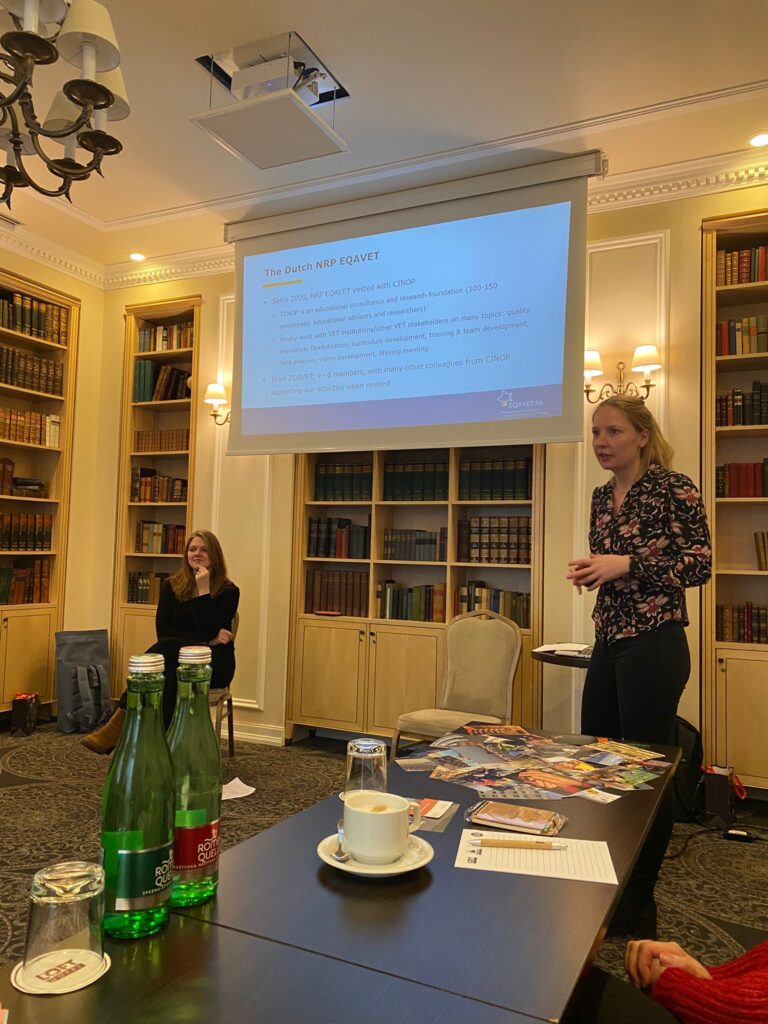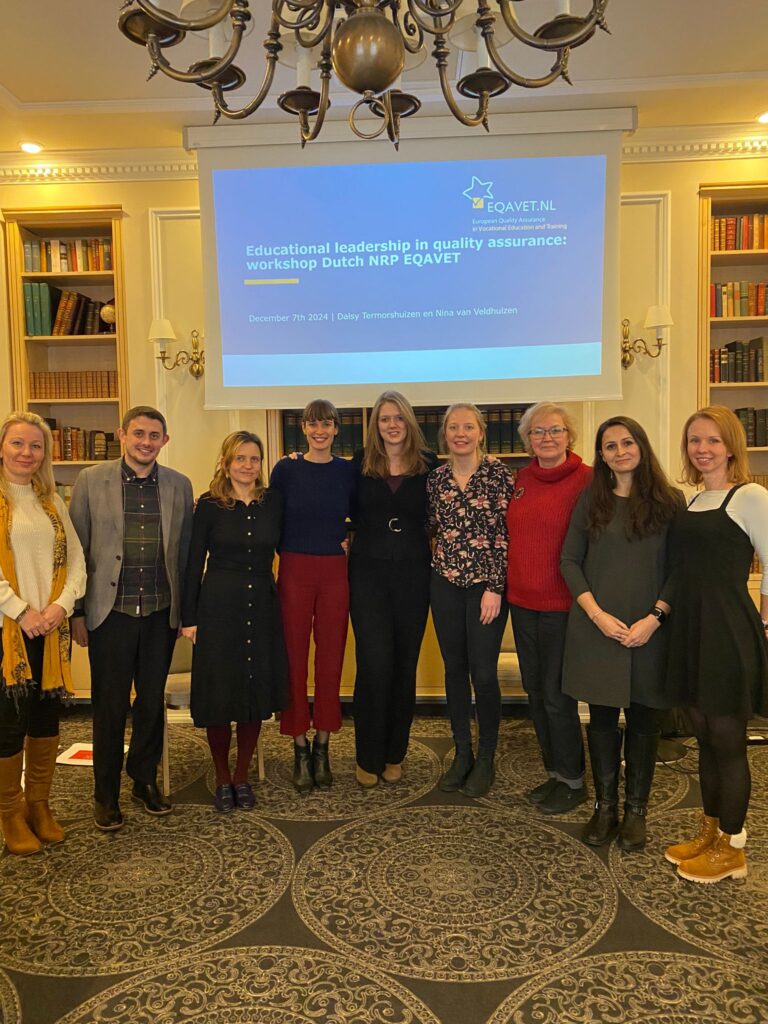It is more important than ever to support strong leaders who are not afraid to take responsibility for the quality of education in their institutions. To be successful, they need to understand the European and national policy frameworks, develop local resources and support staff and their needs.
A tool for such changes requiring a culture of continuous improvement has been created by a team of members of the Dutch NRP EQAVET vested with CINOP (an educational consultancy and research foundation) in Hertogenbosch. Based on a scientific study, they developed a manual with specific interventions in 10 different areas from 4 different perspectives – the teaching team, the manager of teaching teams, the board of directors/middle management and supporting services. with specific interventions in 10 different areas from 4 different perspectives – the teaching team, the manager of teaching teams, the board of directors/middle management and supporting services.
During a 1-day workshop organised by the Slovak NRP EQAVET based in State vocational Education Institute for TVET teachers and school management, the methodology and activities were presented personally by Daisy Thermoshuizen and Nina van Veldhuizen.
During the regular meetings in the Netherlands, participants go through all 4 sessions together, with time between meetings to apply the individual knowledge and tasks directly into practice. During the Slovak workshop, the participants had the opportunity to get an overview of the individual steps in a shortened version and had tried out some of the exercises.
In the initial first part, the goal is doing an in-depth analysis of the challenge they face (or the development needs they have) related to quality assurance within their institutions. For this purpose is used “5 Why” method, which helps to understand in depth the root cause of the problems. Participants then create a stakeholder map and analyse the current and desired situation to gain insight in who is or should be involved with their issue.
The second part is devoted to the different areas of quality assurance. The aim is to deepen the theory regarding ownership, role given, role taken, and circle of influence and involvement.
In the third part, participants try out styles of influence and communication strategies, discuss specific case studies and set up individual interventions. 40 possible interventions in actions and behaviours that can contribute to the educational leadership of teaching teams are listed in the above-mentioned manual.
Finally, in the fourth part, participants present their interventions and development needs and receive valuable feedback.
Participants of the Slovak training highlighted the importance of the initial identification of the underlying issue, possibilities of resources to eliminate it. During the training, they also realised the importance of identifying the roles of individual employees and their work capabilities. They would like to try out the workshop activities presented within their colleagues. They found the manual very clear and helpful. They also stressed out the training format as beneficial, where a group of people from different backgrounds try to move each other forward and find solutions throughout this trajectory.
Thanks to the training, NRP EQAVET Slovakia is planning to implement the trajectory during the Quality Month 2024. We express our gratitude to both the trainers and all participants who contributed to the workshop. We eagerly anticipate the opportunity for ongoing collaboration.



